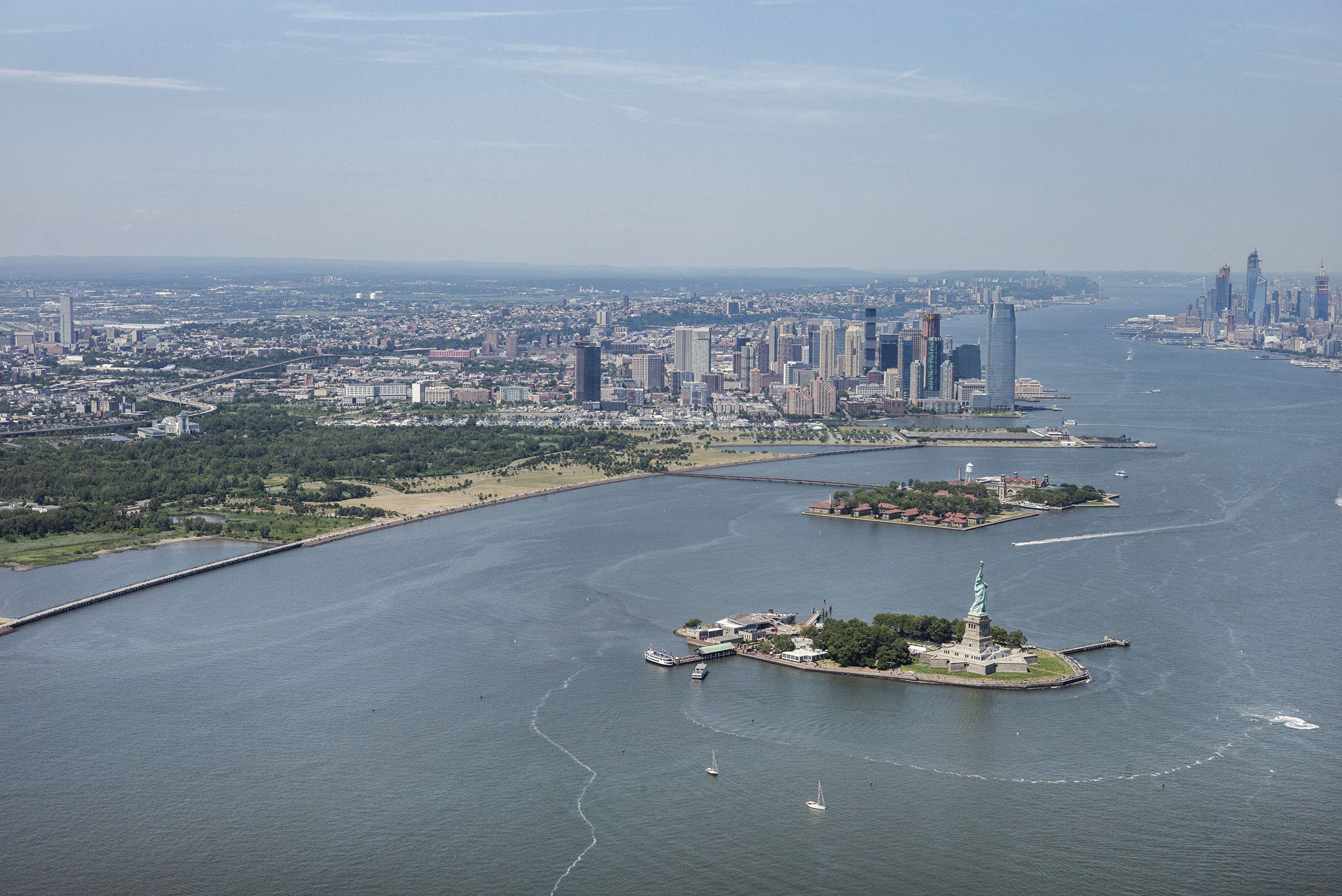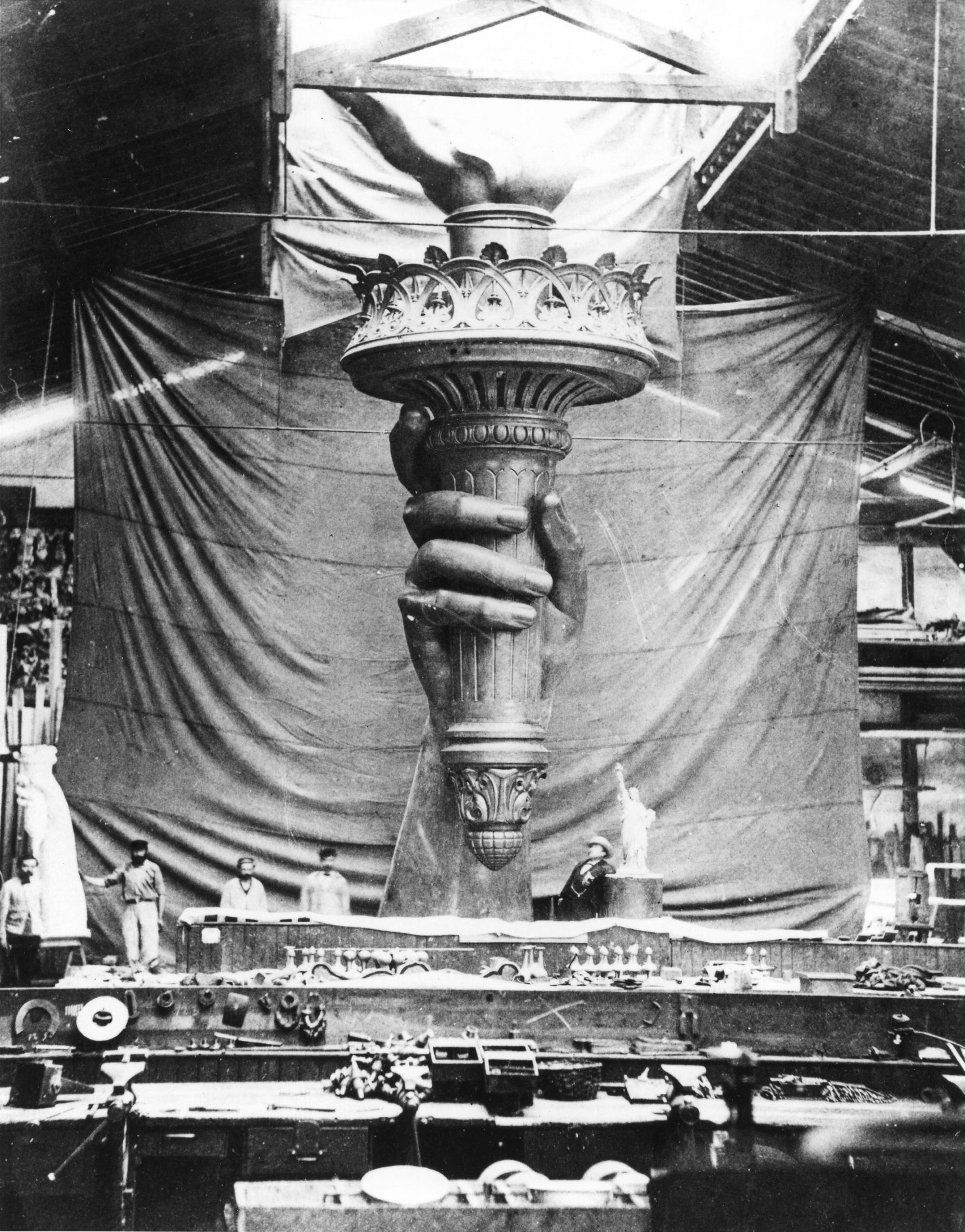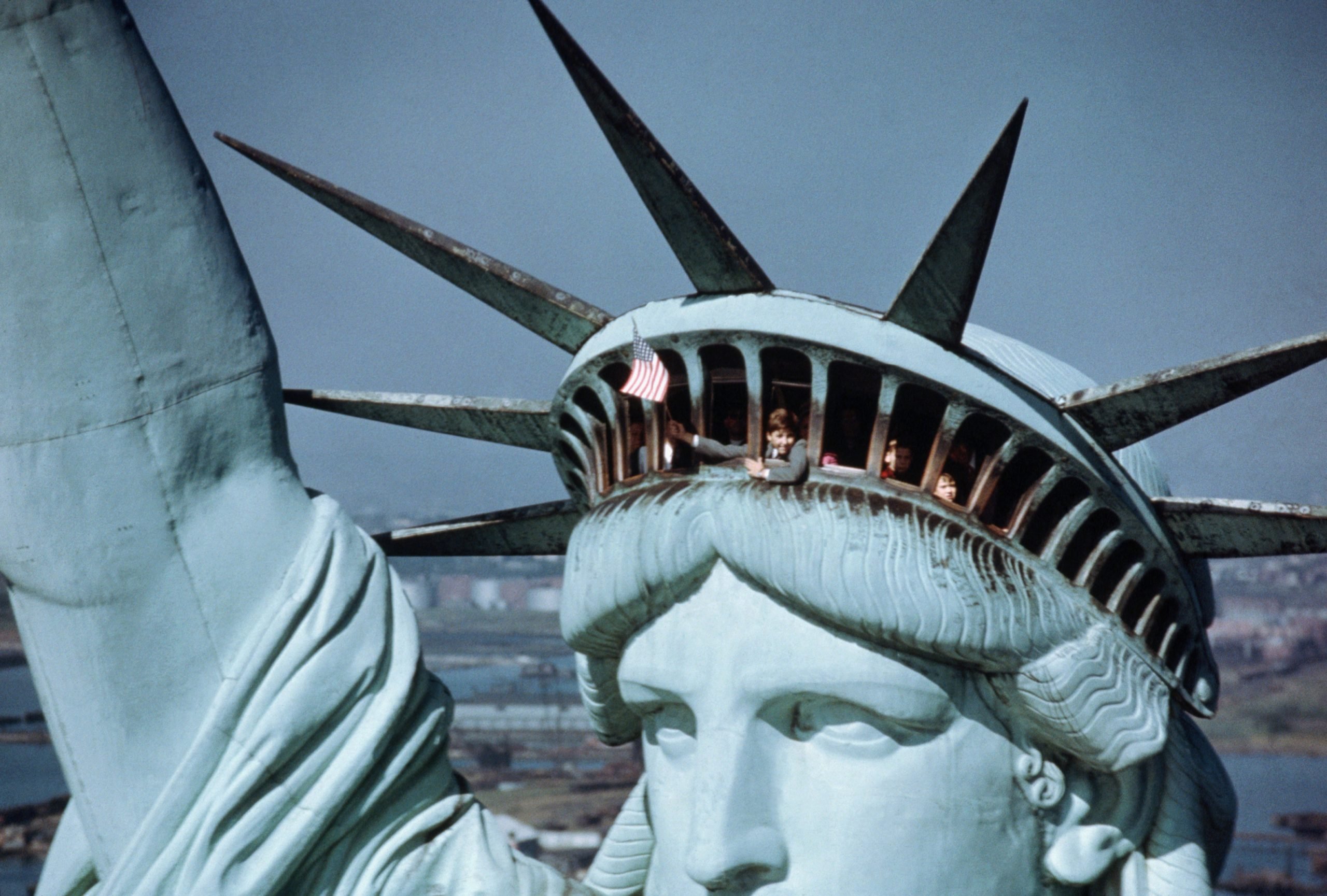Statue of Liberty: Complete Guide to America's Symbol of Freedom (2024)
Statue of Liberty: Complete Guide to America's Symbol of Freedom (2024)
Table of Contents

The Statue of Liberty, officially known as "Liberty Enlightening the World," stands as one of the most recognizable symbols of freedom and democracy in the world. Rising majestically from Liberty Island in New York Harbor, this colossal copper sculpture has welcomed millions of visitors and immigrants to America since her dedication on October 28, 1886.
History and Origins of the Statue of Liberty
The statue's story begins in 1865 when French historian and abolitionist Édouard de Laboulaye proposed creating a monumental gift from France to the United States. Laboulaye wanted to commemorate the centennial of American independence and celebrate the recent abolition of slavery, while inspiring his own countrymen to fight for liberty under Napoleon III's oppressive regime.
Sculptor Frédéric Auguste Bartholdi was captivated by Laboulaye's vision and began conceptualizing the massive structure. Interestingly, Bartholdi had previously designed a similar colossal statue for Egypt's Suez Canal called "Egypt Carrying the Light to Asia," featuring a robed woman holding a torch. When Egypt rejected the proposal due to cost, Bartholdi adapted his design for America.
The Franco-American Collaboration
The project became a true international effort: France would fund the statue itself, while Americans would finance the pedestal. This partnership required extensive fundraising on both sides of the Atlantic, including public fees, entertainment events, and art auctions in France.

In America, fundraising initially struggled until newspaper publisher Joseph Pulitzer launched a revolutionary crowdfunding campaign in 1885. He published donors' names in the New York World and raised over $100,000 from more than 120,000 contributors, with most donations under one dollar.
Construction and Engineering Marvel
The statue's construction required the expertise of Gustave Eiffel (yes, the same engineer who built the Eiffel Tower), who designed the innovative internal iron framework that allows the copper skin to move independently while maintaining structural integrity.
Technical Specifications
- Height: 151 feet (46 meters) from base to torch
- Total height with pedestal: 305 feet (93 meters)
- Weight: 450,000 pounds (225 tons)
- Copper thickness: Just 2.4mm (thinner than two pennies)
- Crown spikes: 7 rays representing the seven seas and continents
The statue was constructed in France and shipped to America in 350 pieces packed in 214 crates aboard the frigate Isère. The copper skin was shaped using the repoussé technique, where heated copper sheets were hammered into wooden molds.
Symbolism and Hidden Meanings

Every element of Lady Liberty carries deep symbolic meaning that many visitors overlook:
The Torch
The torch represents enlightenment, lighting the path to freedom and knowledge. The current torch, installed in 1986, is covered in 24-karat gold leaf and illuminated from within.
The Tablet
Lady Liberty holds a tabula ansata inscribed with "JULY IV MDCCLXXVI" (July 4, 1776), commemorating American independence and the concept of law.
The Broken Chains
Often overlooked, broken shackles and chains lie at her feet, symbolizing the end of slavery and oppression. Originally, Bartholdi planned for Liberty to hold broken chains, but deemed this too controversial post-Civil War.
The Crown
The seven spikes on Liberty's crown represent the seven continents and seven seas, symbolizing the universal concept of liberty spreading across the world.
Visiting the Statue of Liberty Today
More than 4.5 million people visit the Statue of Liberty annually, making it one of America's most popular attractions. Visitors must take ferries from Battery Park in Manhattan or Liberty State Park in New Jersey.
Access Levels
- Grounds Access: Walk around Liberty Island and visit the museum
- Pedestal Access: Climb to the top of the pedestal for harbor views
- Crown Access: Limited to 10 people per day, requires advance reservations
- Torch Access: Permanently closed since 1916 due to WWI sabotage damage

Amazing Statue of Liberty Facts
These fascinating details showcase why Lady Liberty continues to captivate visitors:
The Color Change
The statue was originally brown like a penny when first erected. The distinctive green patina developed over 35 years as the copper oxidized in the salty harbor air.
Lightning Magnet
Lady Liberty gets struck by lightning approximately 600 times per year. The copper construction and height make her a natural lightning rod, though the statue is designed to handle these strikes safely.
Movement in Wind
Despite her solid appearance, the statue can sway up to 3 inches in strong winds, while her torch can move up to 5 inches. This flexibility prevents structural damage.
The Walking Pose
Lady Liberty isn't standing still—she's captured mid-stride with her right foot lifted, symbolizing forward movement and progress toward freedom.
Frequently Asked Questions
Can you still climb to the torch of the Statue of Liberty?
No, torch access has been permanently closed since 1916 when German saboteurs damaged it during the Black Tom explosion. The torch was replaced in 1986 and covered in 24-karat gold leaf.
How tall is the Statue of Liberty?
The statue itself is 151 feet tall from base to torch. Including the pedestal, the total height is 305 feet. From the ground to the tip of the torch measures 305 feet 1 inch.
Why is the Statue of Liberty green?
The green color is patina—a natural oxidation process that occurs when copper is exposed to air and moisture over time. The statue was brown when first assembled but turned green over approximately 35 years.
What do the 7 spikes on the crown represent?
The seven spikes on Lady Liberty's crown represent the seven continents and seven seas, symbolizing the universal concept of liberty and enlightenment spreading across the entire world.
How much did the Statue of Liberty cost?
The French people raised approximately $250,000 for the statue construction (equivalent to about $6 million today), while Americans raised $280,000 for the pedestal through crowdfunding efforts led by Joseph Pulitzer.
Legacy and Continuing Symbol
Today, the Statue of Liberty remains one of the world's most powerful symbols of freedom, democracy, and opportunity. From her position in New York Harbor, she continues to inspire millions of visitors annually and serves as a reminder of the enduring values that unite humanity in the pursuit of liberty.
Whether you're planning your first visit or simply deepening your appreciation for this American icon, Lady Liberty's story encompasses the very best of international cooperation, artistic achievement, and the timeless human desire for freedom.

Share This Ultimate Statue of Liberty Guide
Found this comprehensive guide helpful? Share it with fellow travelers, history enthusiasts, and anyone planning to visit New York City! Help others discover the fascinating stories behind America's most iconic symbol.